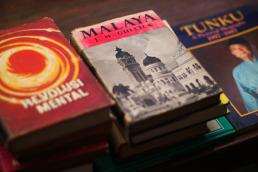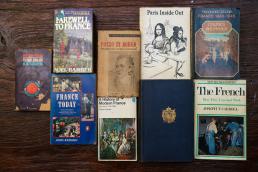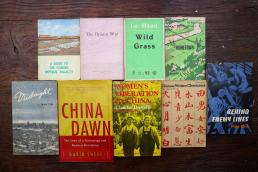My late grandfather was an ambassador. In his decades of service since the Malayan Independence in 1957, he has served in the diplomatic mission in several countries. Countries that Malaysia, at its youth, wanted to establish key relationships with.
Before the age of the Internet, research was primarily done by reading. My dad would often relate to me stories of how his varsity-years research consisted of pouring through library catalogs, examining microfilms and fine combing through the texts of research papers and books. Compared to that, it is unimaginable easy to do research now, with most things a keyword search away.

Coming back to my grandfather and diplomacy, research is essential. In getting up to speed to his visiting country’s culture, economics, politics, and history. The fine art of diplomacy involves layers of intellectual rigor and a sensitive (and subtle) output to differences. As well as knowing how to negotiate through those differences with delicacy.
For this, I turn to studying my late grandfather’s library collection that I had recently acquired. His collection, built over the decades, is a mix of culture, history, politics, economics and surprisingly, literature. This, I believe is how my grandfather, as an ambassador, prepared for his overseas postings, visits – and even during duty, continued to acquire and read new materials to top his knowledge.
My application of his methods, however, is for less serious purposes but for one essential in the vein of what he did: traveling.
Reading Laterally
I have yet to fully catalog and itemize my late grandfather’s library, but I could easily sum that he had no less than an estimate at least 600 books. Often, I’d find a pattern on books with regards to countries:
- Obvious: History, Economics, Developmental/Cultural Studies, Government or Institutional Reports, Language, Travelling Guides, News.
- Subtle: Biographies of Public Figures, Philosophy, Essays, Literature.
Those that inhabit the obvious category don’t need much explanation. Reading the obvious materials inform you of the facts and context – things you (probably) need to know prior to visiting a new place. They’re instructional, clear-cut and its materials can be applied with some level of common sense in conversations and interaction.
But the subtle materials are the ones that shape a deeper understanding. Reading the philosophies or essays of the visiting country’s thinkers inform you of their intellectual and societal zeitgeist. Poetry, novels and fictional works set in, or depicting the country imparts a sense of emotion and atmosphere, as well as a feel for the nation’s pulse. It’s always worth exploring the nation’s literary pulse to get a better sense of the people, even more than what facts, figures, and historical timestamps can tell you.



There is no shred of doubt that my grandfather was an incredibly well-read man. His line of work required so and his constant thirst for knowledge led him to explore materials both medial and lateral. Because you can’t understand a nation and its people only through their minds, but also their hearts.
It’s a useful method I’d take note of to apply for future travels.